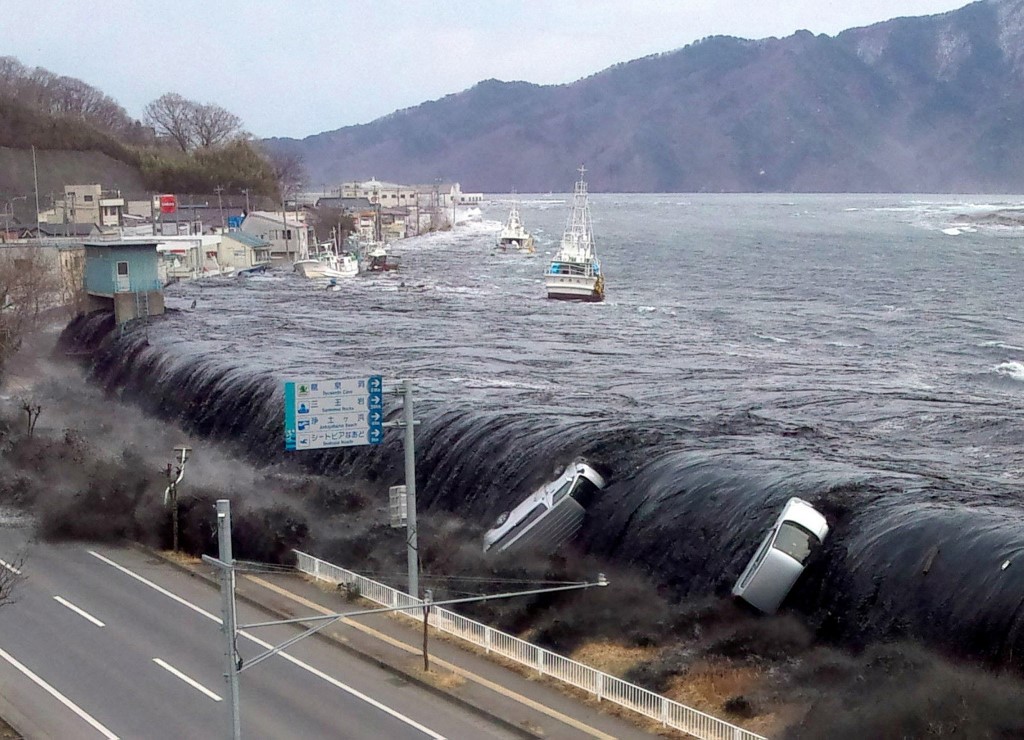
by Harumi Ozawa with Sara Hussein in Tokyo
HISANOHAMA, Japan (AFP) — Japan on Thursday marks 10 years since the worst natural disaster in the country’s living memory: a powerful earthquake, deadly tsunami and nuclear meltdown that traumatized a nation.
Around 18,500 people were killed or left missing in the disaster, most of them claimed by the towering waves that swept across swathes of the northeast coast after one of the strongest quakes ever recorded.
The ensuing nuclear meltdown at the Fukushima Daiichi nuclear plant blanketed nearby areas with radiation, rendering some towns uninhabitable for years and displacing tens of thousands of residents.
The day will be full of private and public ceremonies, with a minute’s silence marked nationwide at 14.46 local time, the precise moment a 9.0-magnitude quake struck on March 11, 2011, triggering the disaster.
As the sun rose in Fukushima prefecture’s Hisanohama, 78-year-old Toshio Kumaki was walking along a giant sea wall built after the tsunami.
“I come here every morning for a walk, but this is a special day,” he told AFP as he pressed his hands together and prayed in the direction of the rising sun.
Around 60 people were killed in Ohisa, one of the districts adjacent to the beach, when tsunami waves of seven metres washed ashore, wiping away everything but a tiny shrine.
Kumaki’s eyes filled with tears as he remembered the disaster.
“It was really scary.”
Earlier this week there were searches in Miyagi and Fukushima regions for those still missing, as loved ones refuse to relinquish hope of finding them even a decade on.
The chances of success may appear slim, but just last week the remains of a woman missing since the tsunami were identified, in what her surviving son described as a chance to process his emotions and move forward.
In Tokyo, a slimmed-down ceremony observing virus rules will be held at the national theatre, with speeches from Emperor Naruhito and Prime Minister Yoshihide Suga.
Tokyo and surrounding areas are currently under a virus state of emergency, so the audience invited to the event will be smaller than usual.
The virus will also affect events elsewhere, including an annual prayer gathering held on top of the imposing sea walls in the town of Taro in Iwate.
Participants usually hold hands as they pray for those lost in the tsunami, but this year they will observe social distancing as they remember the dead.
Tributes and condolences poured in from around the world, with everyone from UN Secretary Antonio Guterres to singer Lady Gaga offering their thoughts on the anniversary.
‘People died before my eyes’
The disaster is being marked just two weeks before the Olympic torch relay kicks off in Fukushima prefecture, nodding to efforts to cast the event as the ‘Reconstruction Games’.
The pandemic has cast a long shadow over the Olympics, forcing their unprecedented year-long postponement, but the government and organisers are hoping the relay will bring the spotlight back to the region.
Nayuta Ganbe in Miyagi’s Sendai city speaks regularly at events about disaster prevention, sharing his experience of the tsunami, but he usually marks the anniversary privately.
“It’s the day when I lost my classmates. People died before my eyes. March 11 is a day that I hoped would never come again,” the 21-year-old told AFP recently.
But this year he has decided to participate in an event on the anniversary, hoping it will help him with the ongoing work of processing the trauma he experienced.
For many, the anniversary will be a moment for private reflection on a tragedy that continues to reverberate, with tens of thousands of people who evacuated fearing radiation still displaced and around two percent of Fukushima still off-limits.
Reverend Akira Sato, who ministered at several churches that in areas still largely off-limits around the Fukushima plant, plans to visit one of the abandoned churches and reflect.
“Together with my wife, I will silently think back over the days of the disaster and offer a prayer.”
© Agence France-Presse







